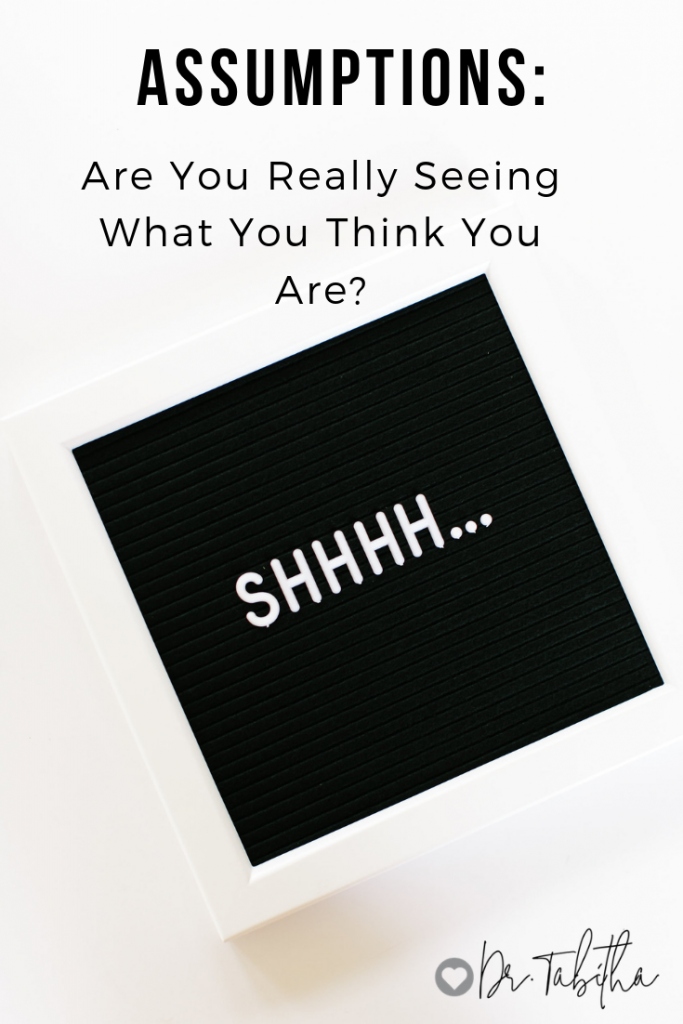
I’ve done an exercise with clients where I have them repeat back what they understood their partner said and the results can be pretty impactful. Sometimes I hear one person struggling to say what they mean and other times the person who repeats it back doesn’t come close to what their partner actually said. How often are you truly understanding what your partner is saying and how often are you saying what you really think you are? The thing about assumptions is, they are rarely valid yet they are one of (if not the biggest) barrier to effective communication.
Below are some helpful cues in identifying when you might be making assumptions:
Tune in to your emotions.
Check in with how you are feeling. Anytime we are experiencing negative emotions we tend to distort what happening around us. If you are feeling hurt, rejected or angry – take that as a cue to explore things further.
Listen.
When we start cutting off what our partners are saying and thinking about how we feel about the situation, we are probably making assumptions. Try to hear what your partner is actually saying. If they are saying they feel misunderstood, ask yourself if you’ve made any assumptions about the situation. Try to be clear and make sure they heard what you intended them to hear. Ask clarifying questions to make sure you both understand each other.
Throw out right vs. wrong.
If you find yourself dead set on figuring out who is right and who is wrong, assumptions may be involved. Usually there is no “right” or “wrong,” only different realities or perceptions. Make it a habit to understand and validate your partner’s (even if you don’t agree) and help them understand yours. Assumptions don’t allow for change, growth or negotiation.
Consider where you come from.
For some people, communicating their requests is difficult. Some are raised in an environment where communication was poor, distorted, abusive or manipulative. Other families ignore issues or “brush them under the rug.” In some families, members are taught the belief that asking for what they want is wrong or selfish. All of us are prone to making assumptions, and all of us do it, but people who’ve had these experiences may be more prone or susceptible to assumptions.
Effective communication is a tricky thing. It’s something that none of us, even the experts, have fully mastered. That’s because we all see the world differently, we all have emotions that cloud our judgment at times and we have all found ourselves in a situation where we’ve struggled to connect or make sense of things – often those things can lead to assumptions.
If you’ve tried improving the communication in your relationship on your own but are still struggling to feel heard or understood, this team of highly trained therapists specialize in helping you communicate more clearly and effectively. We are here and ready to help you today.
You may also find our Luxe Couples Retreat to be the perfect fit. Learn more about spending a week in paradise focusing on your needs, communication, intimacy and other valuable relationship skills.






Leave a Reply
Your email is safe with us.